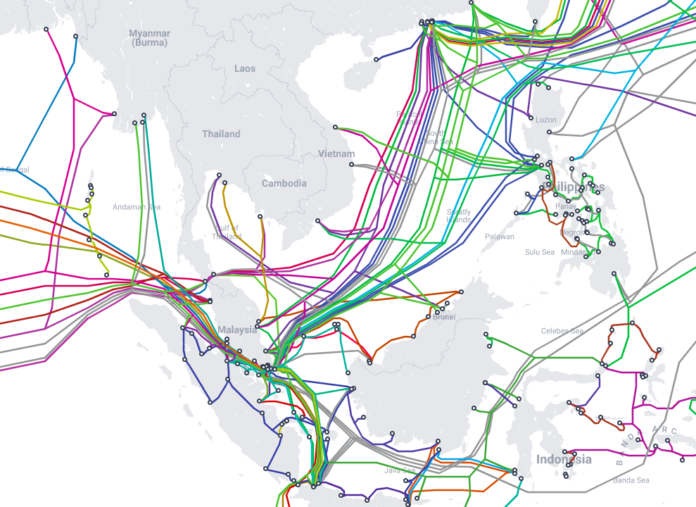Global internet bandwidth rose by 29% in 2021, signaling a return to “normal” over the previous year’s COVID-driven surge of 34%, according to TeleGeography.
The global telecommunications market research and consulting firm’s Global Internet Geography Research Service analyses the meaning behind internet capacity and traffic data sets, the factors impacting IP transit pricing, and the role individual backbone operators play.
“International internet bandwidth growth largely mirrors that of internet capacity, which both have a CAGR of 29% between 2017 and 2021,” said Alan Mauldin, research director at TeleGeography.
Total international bandwidth now stands at 786 Tbps, representing a four-year CAGR of 29%.
Africa experienced the most rapid growth of international internet bandwidth, growing at a CAGR of 45% between 2017 and 2021. Oceania is just behind Africa, with a 38% CAGR during the same period.
The stay-at-home activity associated with COVID-19 resulted in a spike in traffic from 2019-2020. The return to more normal usage patterns resulted in a substantial slowdown in the annual growth rate.
While average traffic growth dropped from 48% between 2019-2020 to 23% between 2020-2021, and peak traffic growth dropped from 46% to 26% over the same time period, traffic is largely growing overall.
“On a global scale, we’re seeing a whole range of new internet-enabled devices, growing broadband penetration in developing markets, higher broadband access rates, and even more bandwidth-intensive applications,” said Anahí Rebatta, senior analyst at TeleGeography.
“These are just some of the factors fueling strong internet traffic growth and end-user traffic requirements,” said Rebatta.
Citing hard survey data gathered from dozens of regional and global network operators around the world, TeleGeography concludes that COVID-related expansion of internet traffic and bandwidth was largely a one-off phenomenon and that the trends that have been observed in recent years have reasserted themselves.
















